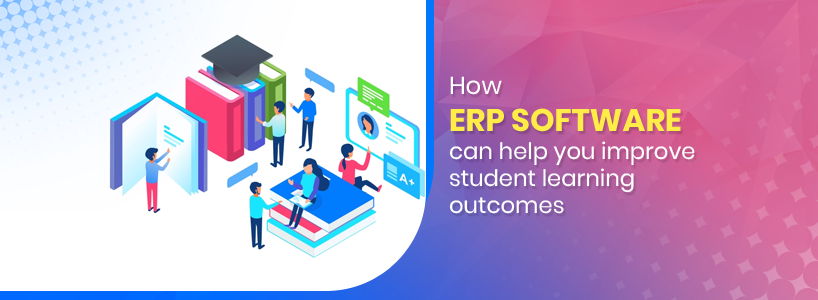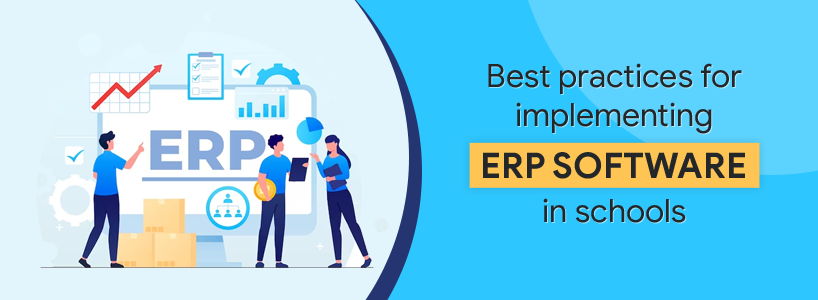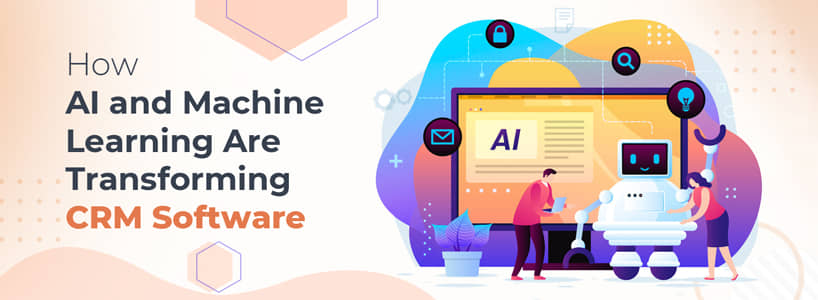How ERP Software can help you improve student learning outcomes
Enterprise Resource Planning (ERP) software can play a crucial role in improving student learning outcomes by streamlining and enhancing various aspects of educational institutions.
How ERP Software can help you improve student learning outcomes

- Centralized Data Repository: ERP systems provide a centralized database that can store and manage student information, academic records, attendance, and performance data. This ensures easy access to relevant information for teachers, administrators, and parents.
- Parent-Teacher Communication: ERP systems facilitate effective communication between teachers and parents. This helps keep parents informed about their child's progress, attendance, and overall performance, fostering a collaborative approach to education.
- Automation of Administrative Processes: ERP software automates routine administrative tasks such as attendance tracking, grading, and scheduling. This allows educators to focus more on teaching and providing personalized attention to students.
- Admission and Enrollment Management: ERP systems simplify the admission and enrollment processes, ensuring that students can smoothly transition into the educational system without unnecessary delays.
- Enhanced Academic Management: ERP software can track individual student performance, helping educators to identify strengths and weaknesses.
- Improved Communication and Collaboration: Facilitates real-time communication between teachers, students, and parents through integrated messaging and notification systems.
- Streamlined Administrative Processes: Automates routine administrative tasks such as attendance tracking, grade recording, and report generation.
- Enhanced Learning Environment: Provides flexibility and caters to different learning styles, improving student engagement and outcomes.
- Student Self-Service Portals: Provides students with access to their academic records, schedules, and learning resources through self-service portals.
- Student Information System: Centralizes student records, including personal details, academic history, attendance, and disciplinary actions. Facilitates easy access and management of student information for teachers and administrators.
- Admission Management: Automates the entire admission process, from application submission to enrollment.
- Fee Management: Automates fee collection, invoicing, and receipt generation. Tracks financial transactions and provides financial reports.
- Timetable and Schedule Management: Ensures optimal utilization of resources and avoids scheduling conflicts.
- HR and Payroll Management: Manages staff records, payroll, and attendance. Handles recruitment, leave management, and performance appraisals.
- Streamlined Administrative Processes: Automates routine administrative tasks, reducing manual work and the potential for errors. Frees up administrative staff to focus on more strategic activities.
- Enhanced Data Management: Centralizes all data in a single platform, ensuring easy access and consistency. Reduces data redundancy and ensures accuracy.
- Enhanced Student and Parent Engagement: Provides portals for students and parents to access important information and stay engaged with the school community.
Innovative Web Design Trends
As web design continues to evolve, new trends are emerging that enhance user experience, boost engagement, and make websites more dynamic and interactive. Businesses can create more immersive, interactive, and personalized online experiences that resonate with users and meet their evolving needs.
Bansal Trading Company a Leading Chemical Distributor in India
Bansal Trading Company is known for its extensive product range, strategic partnerships with top manufacturers, and commitment to innovation. preferred choice for businesses seeking reliable chemical distribution in India. The company has built a strong reputation for providing high-quality chemicals across various industries, including plastics, personal care, home care, paints, and coatings.
Best Practices for Successful ERP Software Implementation in Schools
Implementing Enterprise Resource Planning (ERP) software in schools can be a complex process, but following best practices can help ensure a successful deployment.
How ERP Software can help you improve student learning outcomes
Enterprise Resource Planning (ERP) software can play a crucial role in improving student learning outcomes by streamlining and enhancing various aspects of educational institutions.
How AI and Machine Learning Are Transforming CRM Software
AI (Artificial Intelligence) and machine learning have significantly transformed Customer Relationship Management (CRM) software, enhancing its capabilities and providing businesses with powerful tools to improve customer interactions and relationships.




